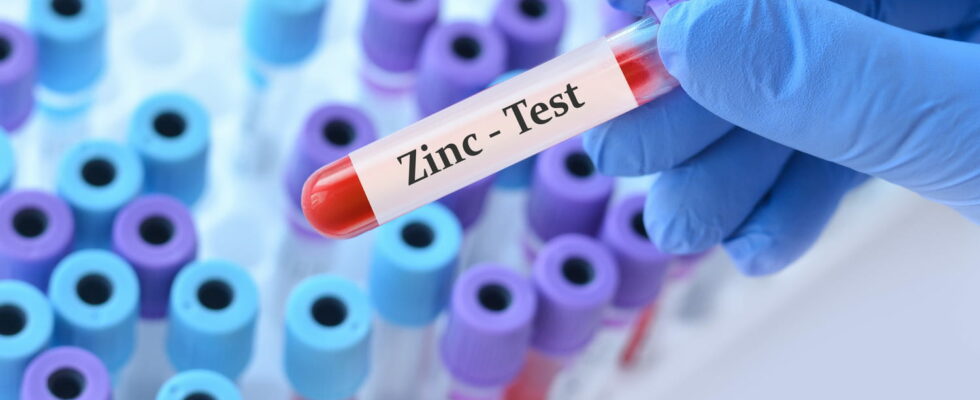Zinc is a very versatile trace element for our body.
Zinc is a mineral salt, more precisely, an essential trace element to the proper functioning of our organism. It intervenes in more than 300 biochemical reactions in the body. “It contributes to hair growth, fighting oxidative stress (accelerated aging), helps limit stress, maintains hormonal balance whose testosterone, contributes to good fertility, good immunity, maintaining a Vision and a normal framework, it can accompany in case of painful rules … and many other benefits! explains Mathieu Bouarfa, biochemist biologist. It is therefore important not to lack zinc to stay in shape.
Some symptoms can alert a zinc deficiency: poor circulation, hair loss, loss of taste and smell, growth retardation, low immunity or hormonal imbalance. “In this case, the attending physician can prescribe a biological analysis”explains our interlocutor. This analysis is made thanks to a blood test. According to the specialist, a normal level of zinc in the blood corresponds to “590 to 1440 µg/l (microgram per liter of blood) or 9 to 22 µmol/l (micromoles per liter of blood)”. Below this standard, you have to fill up with zinc.
Zinc is easily and naturally found in our diet, especially in red meats, fish and seafood (especially oysters). In smaller quantity, it is also in the maroilles, rice, rye and wheat bread or even wheat germs. “You have to bet on these foods”recalls the expert, “Like organizing, often forgotten“. Zinc is also available in the form of drugs or food supplements, available without prescription in pharmacy.
But caution with supplementation. According to Mathieu Bouafa, we can “Turn to a dosage of 10 to 15 mg of zinc per day, or 100 to 150% of VNR (reference nutritional values), which allows you to be sure of the quantity”. The moments of sockets are important: on an empty stomach in the morning or between meals or before dinner on “empty belly” or at bedtime if it is far from dinner. “We avoid taking zinc at the same time as iron, calcium or copper”warns the expert. Finally, he advises against turning to zinc bisglycinate, zinc pidolate and zinc picolinate, which can give digestive discomforts or be badly absorbed by the body.
Thank you to Mathieu Bouarfa, biochemist biologist, creator of the Instagram account @nutrastream and author of “Food supplements – Your health revolution”, at Marabout editions.
